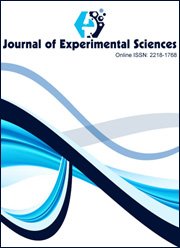Aspects of the Antiandrogenic/Antifertility Property of Azadirachtin-A from Azadirachta indica Leaves in Male Albino Rats: Effect on the Biochemical and Cauda EpididymalSperm Parameters
Abstract
Technical azadirachtin, a major component of A. indica leaves, has low acute/subchronic toxicity and non-mutagenic/teratogenic in mammalian species along with minimal disruption to the ecosystem. The aim of the present study is to examine the dose dependent effect of azadirachtin-A on biochemical, sperm functional parameters and fertility performance in treated groups. Wistar strain male albino rats were administered subcutaneously with graded concentrations of azadirachtin-A (0.5, 1.0 and 1.5 mg in suspension of 50% DMSO, respectively / kg body weight) followed by maintaining suitable controls for 24 days. Five animals from each group were used for fertility test. 24 hrs after the last dose, the control and treated animals were sacrificed; reproductive organs were then used for biochemical analysis and cauda epididymal plasma for sperm analysis. No significant differences in their body weight were observed. However, at high dose level of 1.5 mg/kg body weight, there was a general decrease in reproductive organs weights, altering in biochemical parameters and reduction in the sperm functional parameters with increased abnormal sperms. Furthermore, fertility performance test showed 30% even at high dose of azadirachtin-A treated for 24 days. In this study such high dose effects may have resulted from the deficiency in the level of circulating androgen, probably due to androgen deficiency consequent to the anti-androgenic property of azadirachtin-A and using this compound, in effective dose manner, may be a potential candidate as a contraceptive agent for the induction of infertility in humans by means of phytochemical approach.




 .
.